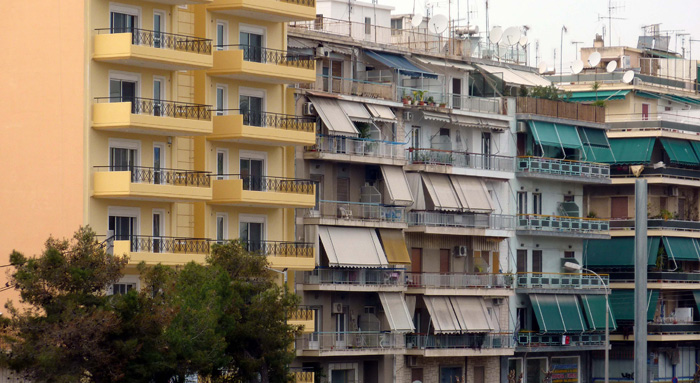The eligibility conditions and the beneficiaries of the programs, which are addressed mainly to young and vulnerable groups of citizens, remain within the framework that has already been announced.
In particular, the main prerequisites for the individual programs are as follows:
1. Program "My home"
Beneficiaries of interest-free or low-interest loans are people aged 25-39 with an annual income of 10,000 euros up to the limit provided for the granting of a heating allowance and who do not own a property suitable for their residence.
The properties must have a value of up to 200,000 euros, an area of up to 150 sq.m. and at least 15 years old.
The total budget of the program is €500 million (with provision for doubling in case of exhaustion of the available resources), while it is been estimated that the beneficiaries will be 10,000 young people or young couples aged 25-39. The program is expected to be implemented by the first quarter of 2023.
2. Social Compensation
This is a new scheme that was comprised in the ministry's "toolbox" for housing policy. It is been defined as: "Partnership of bodies of the General Government, with private contractors, in which the contractor completes the building's construction at their own expense on undeveloped property of the body and his consideration consists in the exploitation of the property for a certain period of time with the parallel obligation to rent part of it to beneficiaries against a predetermined rent. After the end of the exploitation period, the contractor is obliged to hand over the property to the owner operator".
According to the bill, eligible tenants are selected based on objective social criteria, while in addition to simply renting the houses at a low rent, it will also be allowed to sign lease contracts with an option to purchase them from the beneficiaries (rent to own).
3. Coverage program
It refers to the leasing by the State of private houses that participated in the "Estia" program for housing immigrants, and their provision to vulnerable young people and young couples. According to the bill, the owners of the properties are required to rent the residences for three years to persons aged 25-39, beneficiaries of the Minimum Guaranteed Income.
The aim is to utilize in the first phase at least 1,000 properties, which will house 2,500 beneficiaries aged 25-39, beneficiaries of the Minimum Guaranteed Income.
4. Refurbish-Rent
The scheme aims to bring vacant homes in the supply side of the market by subsidizing owners for the renovation.
The bill provides that homeowners with an annual income of up to 40,000 euros and real estate up to 300,000 euros participate in the program, while those who have joined energy saving or renovation programs for any of their properties in the last five years are excluded.
The property must have an area of up to 100 sq.m. and located in an urban area, it must not have been declared as a first residence, or as rented but listed as vacant in the E2 of the last three years.
Those joining the program are subsidized for repair and renovation costs up to 10,000 euros, (materials and works included). The subsidy reaches 40% of the cost provided that the invoices are paid electronically and the property is leased for at least three years.
The bill also establishes urban planning regulations aimed at removing obstacles and speeding up the implementation of housing policy.















